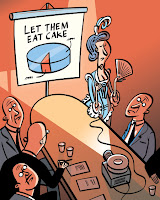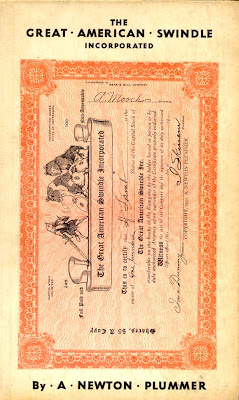The precious metals took a well-deserved rest to consolidate their gains from the recent protracted rally.
30 January 2012
Gold Daily and Silver Weekly Charts
The precious metals took a well-deserved rest to consolidate their gains from the recent protracted rally.
SP 500 and NDX Futures Daily Charts
There is more talk of the Facebook IPO coming out this week, perhaps on Wednesday.
If this is the case the Street will prop this market up to get that IPO priced and out the door, barring any unforeseen events from Europe.
MF Global: A Despicable State of Affairs
Much of the financial press picked up this story from the Wall Street Journal, Money From MF Global Feared Gone. Much of the mainstream media in the US and the UK these days is just a conduit for sound bites from the monied interests.
"Nearly three months after MF Global Holdings Ltd. collapsed, officials hunting for an estimated $1.2 billion in missing customer money increasingly believe that much of it might never be recovered, according to people familiar with the investigation.
As the sprawling probe that includes regulators, criminal and congressional investigators, and court-appointed trustees grinds on, the findings so far suggest that a "significant amount" of the money could have "vaporized" as a result of chaotic trading at MF Global during the week before the company's Oct. 31 bankruptcy filing, said a person close to the investigation."
And as we have heard, quite a bit of that money was also diverted in the last few days into the pockets of MF Global's bank, JP Morgan, which still reportedly holds much of it. Now whether they are legally entitled to keep that money is another matter. But this entire charade has been cloaked with a public relations campaign using terms like 'missing,' 'vaporized,' and 'mystery' to describe the customer assets as if no one really knows where the funds had gone, which the CFTC has explicity stated months ago is not the case. And that the handling of the bankruptcy and the method of ordering customers with creditors is in violation of the CFTC's rule 190, as is evident from the precedents and intentions which established it.
What the press apparently has not yet heard or is not reporting is that vulture funds are now contacting the MF Global customers, however they may have obtained their names, and are offering them 85 cents on the dollar for their claims. Most of the claim holders are reported to expect or to have been payed 72 cents on the dollar as things now stand. The Wall Street Journal certainly casts gloom on their prospects for a full recovery and hopes of justice, based on the report from an unnamed source.
This is creating a difficult position for these much abused customers because of the need to settle their income tax obligations for 2011. Until they can prove the funds are not 'recoverable' they bear the responsibility for their tax obligations on the full amount. But if they settle with the vulture funds they can take the loss and move on, capitulating to the despair and the anxiety of having been cheated and abused by the partnership between government and Wall Street.
Obviously customers can ask for extensions on filing their taxes and hope for a settlement at some point. But the issue is the odd manipulation of the bankruptcy in the courts, and the uncertainty and fear fostered in the customers caused by the management of this situation through rumour and innuendo and the canard of the 'missing money' from almost day one.
Remember that the customers were not speculators who lost money on their bets, as the bailed out banks had been, but in many cases were depositors who had cash and valid title to precious metals and treasuries held on account in a firm that was one of the Fed's primary dealers and a major player at the CME. And the money was taken twice. First by MF Global, and then by the financial institutions that seized the money and then manipulated the courts and the press to hide it and to keep it.
The theft of customer funds was bad enough, but the manner in which the exchange, the regulators, the court, the Congress and the Obama Administration have dealt with the aftermath of this is truly despicable. Throughout the financial crisis the character of the public's dealings with the financial sector has been dominated by of opacity, obfuscation, misuse of influence, abuse of power, and fear.
If I have ever seen the opportunity for those in the government to take a heroic stand in defense of the people against the predations of powerful financial interests this was it. And they have failed miserably. So whatever these politicians now say seems at best a shallow mockery, with the ring of untruth, and the hollowness of hypocrisy.
And perhaps this is why the American people are turning away from their corporate-branded presidential candidates and Congressional representatives, whose approval ratings have fallen to 9%, in righteous indignation and revulsion, in disgust at their craven betrayal of their sacred oaths and trust.
They must have no sense of justice, or of proportion, or history, and apparently they have no shame.
Category:
MF Global
29 January 2012
Moyers Journal: How Did the Big Banks Get So Powerful? Easy Is the Descent Into Hell
Bill Moyers talks with former Citigroup Chairman John Reed to explore a momentous instance: how the mid-90's merger of Citicorp and Travelers Group, and a friendly Presidential pen, brought down the Glass-Steagall Act, a crucial firewall between banks and investment firms which had protected consumers from financial calamity since the aftermath of the Great Depression. In effect, says Moyers, they put the watchdog to sleep.
Listen carefully to the rationales provided for taking down Glass-Steagall, which helped to set up the current financial crisis and collapse. This interview with John Reed by Bill Moyers is one of the most powerful and yet simple summaries of the cause of the financial crisis that I have heard.
The arguments for 'free financial markets' are being repeated again every time there is a discussion of financial re-regulation, providing reform to curb reckless speculation, and shrinking the TBTF banks and the systemic risks which they provide.
All of them are fallacious, but they are backed by amoral self-interest and more importantly, big money.
Although the great landscape of moral decay covers the widespread fraud in the mortgage markets and the foreclosures, there is fine microcosm of this outcome to be seen in the blatant theft of customer money at MF Global by the broker and his banks, as the courts and the regulators turn a blind eye to the victims.
John Swinton is anecdotally, and quite possibly apocryphally, reported to have said this about journalists in The Gilded Age of robber barons, but it aptly describes the economists, politicians, lawyers, accountants, regulators, and the rest of the Wall Street demimonde of our day. Once one sells the integrity of their knowledge, they become tolerant of and even open to soft participation in a much broader set of injustice and crimes.
"The business of the journalist is to destroy the truth; to lie outright; to pervert; to vilify; to fawn at the feet of mammon, and to sell his country and his race for his daily bread.After the Crash of 1929, in the Congressional hearings a Wall Street 'publicist,' A. Newton Plummer, revealed that the majority of financial journalists had been 'on the take' from the great stock pools and manipulators of the day. He could not be discredited by the deniers because he had kept a great cache of cancelled checks to prove his allegations. So he was largely ignored, his story buried for the sake of confidence and recovery, and the freedom and ease of the complicit.
You know it and I know it and what folly is this toasting an independent press? We are the tools and vassals of rich men behind the scenes. We are jumping jacks, they pull the strings and we dance. Our talents, our possibilities and our lives are all the property of other men. We are intellectual prostitutes."
And in our day, now that the music is stopped, the participants and enablers are standing with dirty hands, ashamed but too frightened to acknowledge their part in it, and more cynically, concerned about losing the benefits and the easy money they have obtained from it.
And so the nation is caught in a credibility trap that stifles recovery and reform, and there does not seem to be the ability or the will to return to healthy markets and a balanced economy, what is derided as the 'old normal.' Descensus Averno facilis est...
"Easy is the descent to hell; all night long, all day, the doors of dark Hades stand open; but to retrace the path; to come out again to the sweet air of Heaven - there is the task, there is the burden."
Virgil, The Aeneid
John Reed on Big Banks' Power and Influence
Subscribe to:
Posts (Atom)
































